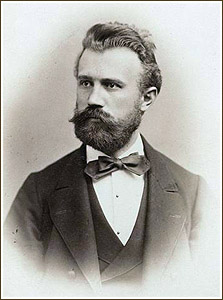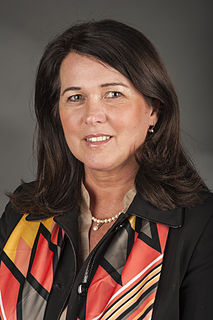
The Hungarian Socialist Party, known mostly by its acronym MSZP, is a social-democratic political party in Hungary.

The National Assembly is the parliament of Hungary. The unicameral body consists of 199 members elected to 4-year terms. Election of members is based on a complex system involving both area and list election; parties must win at least 5% of the popular vote in order to enter the list of members of the assembly. The Assembly includes 25 standing committees to debate and report on introduced bills and to supervise the activities of the ministers. The Constitutional Court of Hungary has the right to challenge legislation on the grounds of constitutionality. The assembly has met in the Hungarian Parliament Building in Budapest since 1902.

Viktor Mihály Orbán is a Hungarian politician serving as Prime Minister of Hungary since 2010. He also served as Prime Minister from 1998 to 2002. He is the present leader of the national conservative Fidesz party, a post he has held since 2003 and, previously, from 1993 to 2000.

The Hungarian Workers' Party is a communist party in Hungary led by Gyula Thürmer. Established after the fall of the communist Hungarian People's Republic, the party has yet to win a seat in the Hungarian parliament. Until May 2009 it was a member of the Party of the European Left.
Elections in Slovakia gives information on election and election results in Slovakia.
Elections in Hungary are held at two levels: general elections to elect the members of the National Assembly and local elections to elect local authorities. European Parliament elections are also held every 5 years.

The Christian Democratic People's Party is a Christian-democratic political party in Hungary. It is officially a coalition partner of the ruling party, Fidesz, but is in reality a satellite party of Fidesz and has been unable to get into the Parliament on its own since 2006. For several elections prior to the pact, they had been unable to pass the election threshold of 5% of the vote. Without Fidesz, its support cannot be measured, and even a leading Fidesz politician, János Lázár, stated that Fidesz does not consider the government to be a coalition government.

The Independent Smallholders, Agrarian Workers and Civic Party, known mostly by its acronym FKgP or its shortened form Independent Smallholders' Party, is a political party in Hungary. Since the 2002 parliamentary elections, the party has won no seats.
The Social Democratic Party of Hungary is a social democratic political party in Hungary. Historically, the party was dissolved during the occupation of Hungary by Nazi Germany (1944-1945) and the communist period of Hungary from 1948 to 1989, after being forced into a merger with the Communist Party. It worked legally for a short time during the Revolution of 1956.

Parliamentary elections were held in Hungary on 9 April 2006, with a second round of voting in 110 of the 176 single-member constituencies on 23 April. The Hungarian Socialist Party emerged as the largest party in the National Assembly with 186 of the 386 seats, and continued the coalition government with the Alliance of Free Democrats. It marked the first time a government had been re-elected since the end of Communist rule.

Auckland Central is a New Zealand electoral division returning one member to the New Zealand House of Representatives. Its current representative is Nikki Kaye, a member of the National Party; she has represented the seat since 2008.
The Government of Hungary exercises executive power in Hungary. It is led by the Prime Minister, and is composed of various ministers. It is the principal organ of public administration. The Prime Minister (miniszterelnök) is elected by the National Assembly and serves as the head of government and exercises executive power. The Prime Minister is the leader of the party with the most seats in parliament. The Prime Minister selects Cabinet ministers and has the exclusive right to dismiss them. Cabinet nominees must appear before consultative open hearings before one or more parliamentary committees, survive a vote in the National Assembly, and be formally approved by the President. The cabinet is responsible to the parliament.

Parliamentary elections were held in Hungary on 11 and 25 April 2010 to choose MPs for the National Assembly. They were the sixth free elections since the end of communist era. 386 members of parliament were elected in a combined system of party lists and electoral constituencies. The electoral law does not allow all adult citizens to stand for being elected unless they can validate 500 signatures of other citizens supporting their candidacy.

Győző Istóczy was a nationalist Hungarian politician and lawyer in the second half of the 19th century. His antisemitic views were flagrant during his political career.

Baron Gábor Andreánszky de Liptószentandrás was a Hungarian politician and Member of Parliament. He was the father of botanist Gábor Andreánszky (1895-1967).

The European Parliament election, 2014 for the election of the delegation from Hungary to the European Parliament was held on 25 May 2014.

Hungarian Liberal Party is a liberal political party in Hungary that was formed on 27 April 2013 and is led by Gábor Fodor, a former MP and president of the Alliance of Free Democrats (SZDSZ).

The 2014 Hungarian parliamentary election took place on 6 April 2014. This parliamentary election was the 7th since the 1990 first multi-party election. The result was a victory for the Fidesz–KDNP alliance, preserving its two-thirds majority, with Viktor Orbán remaining Prime Minister. It was the first election under the new Constitution of Hungary which came into force on 1 January 2012. The new electoral law also entered into force that day. For the first time since Hungary's transition to democracy, the election had a single round. The voters elected 199 MPs instead of the previous 386 lawmakers.

The 1886 United States elections occurred in the middle of Democratic President Grover Cleveland's term, during the Third Party System. Members of the 50th United States Congress were chosen in this election. Democrats retained control of the House, while Republicans retained control of the Senate.

The 2018 Hungarian parliamentary election took place on 8 April 2018. This parliamentary election was the 8th since the 1990 first multi-party election and the 2nd since the adoption of a new Constitution of Hungary which came into force on 1 January 2012. The result was a victory for the Fidesz–KDNP alliance, preserving its two-thirds majority, with Viktor Orbán remaining Prime Minister. Orbán and Fidesz campaigned primarily on the issues of immigration and foreign meddling, and the election was seen as a victory for right-wing populism in Europe.





















